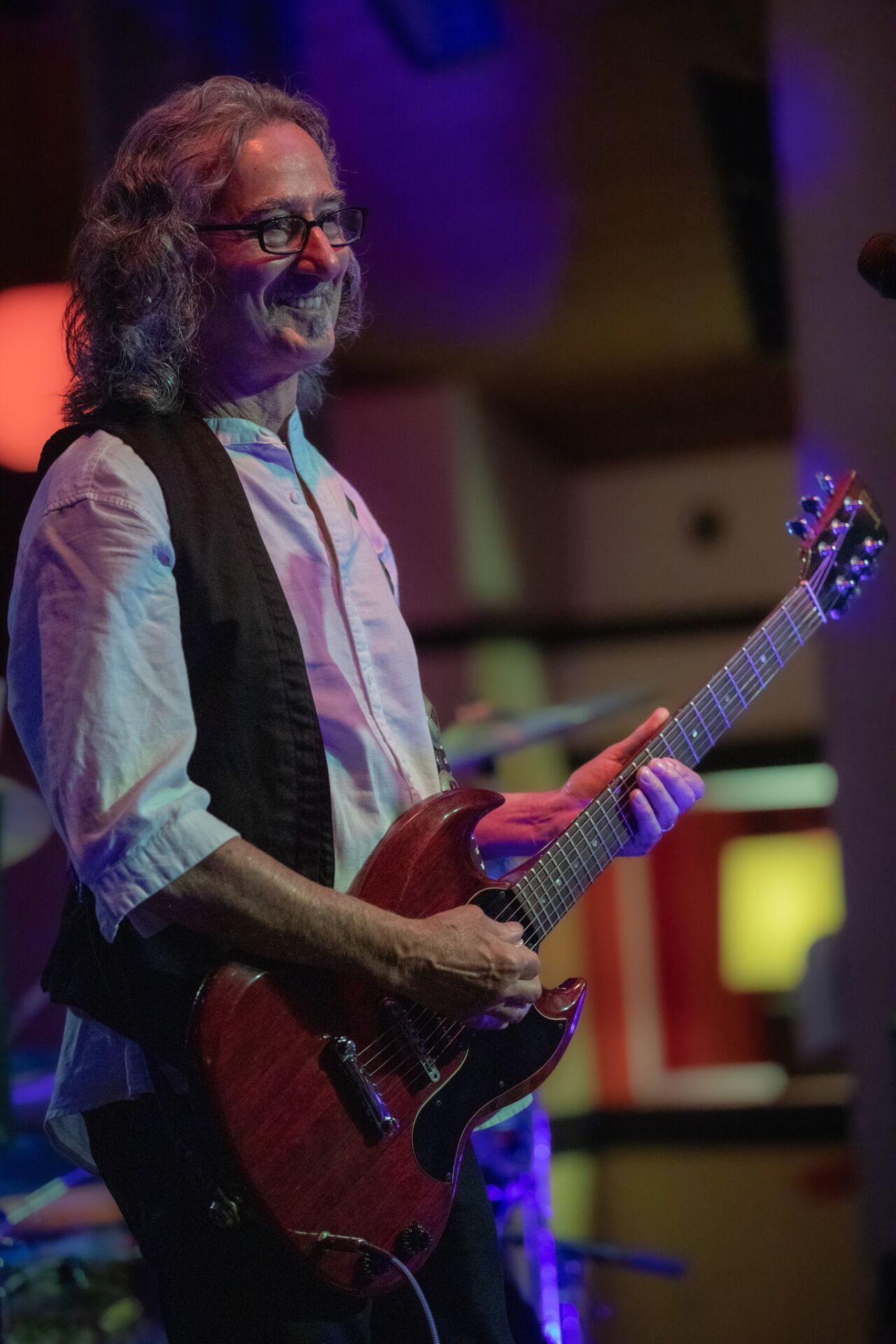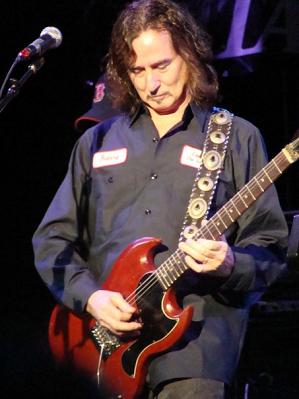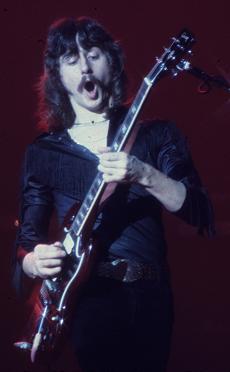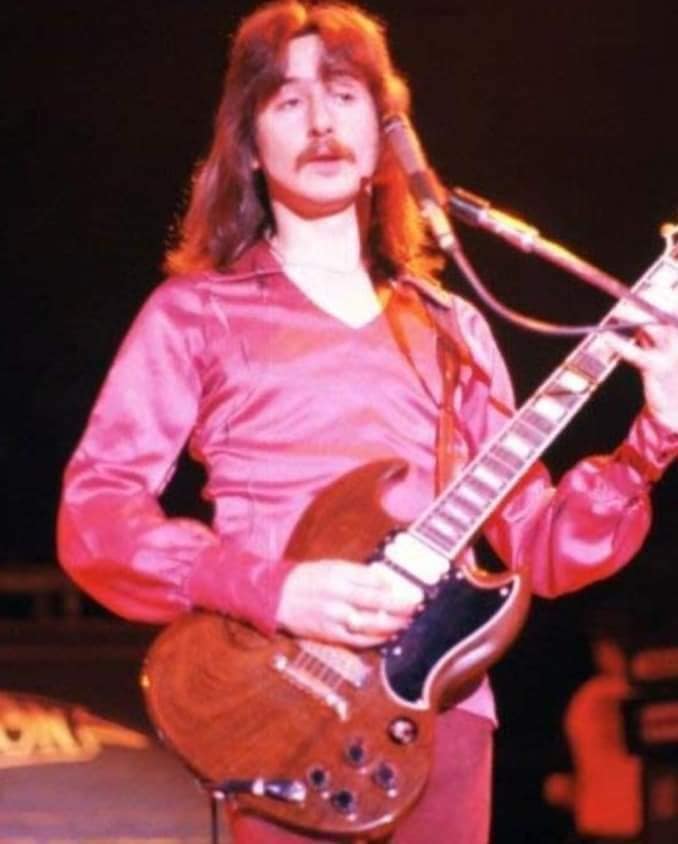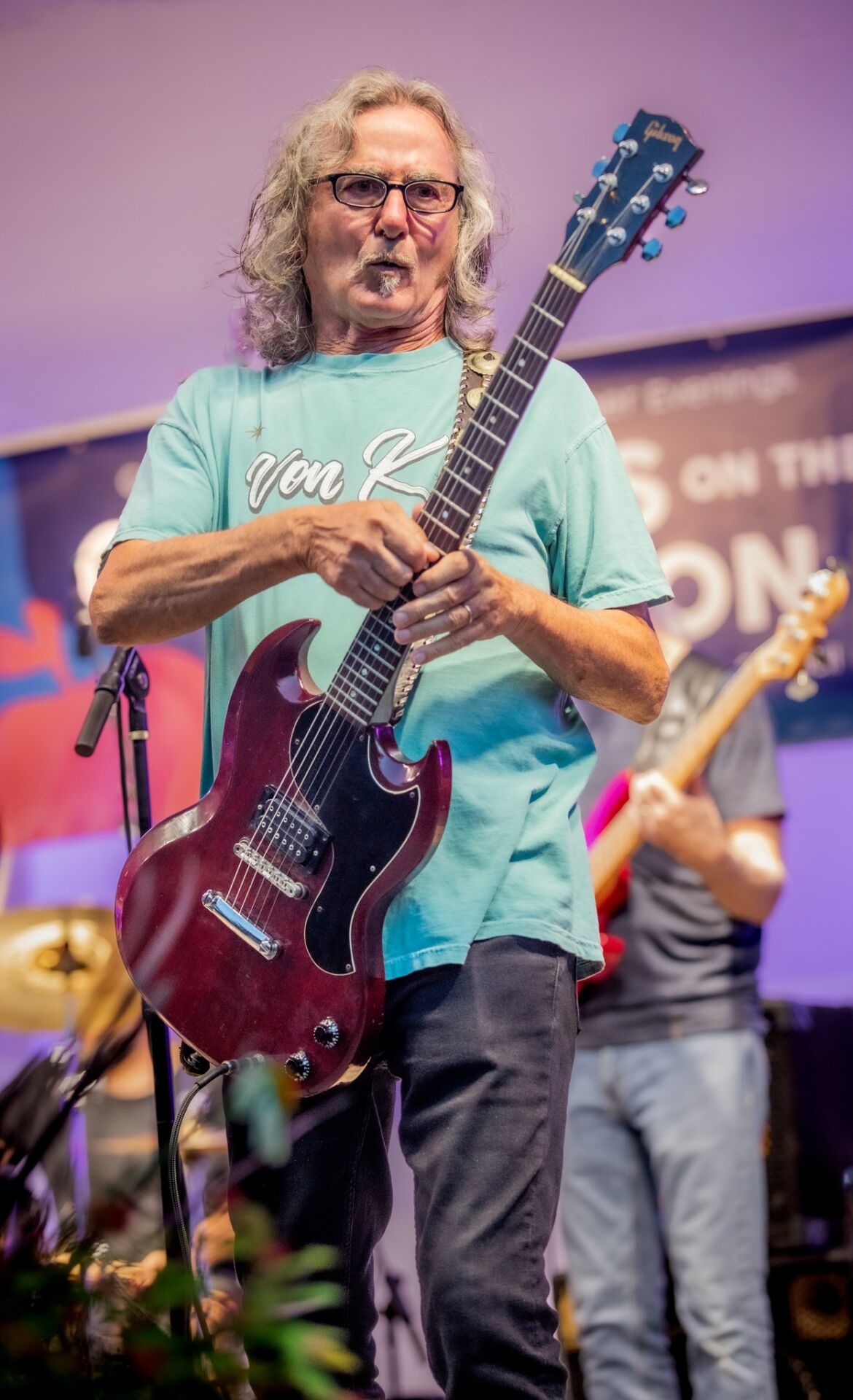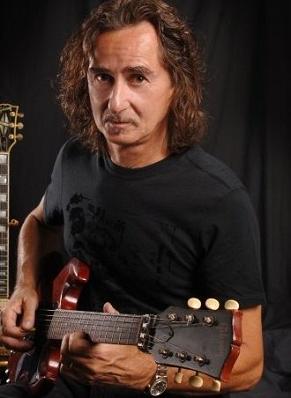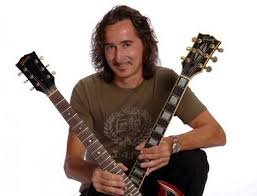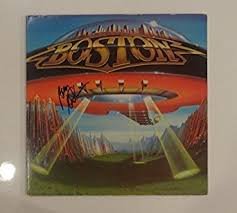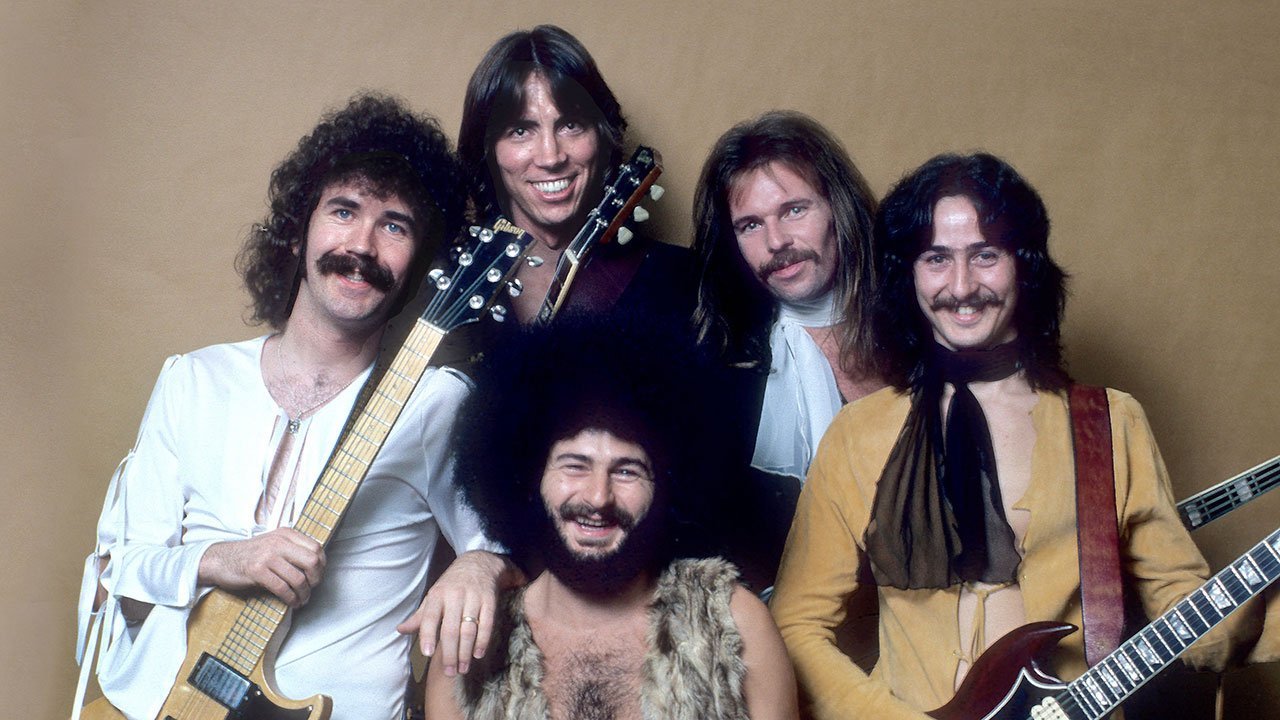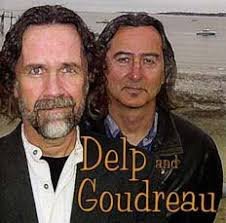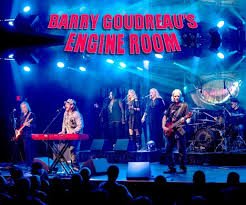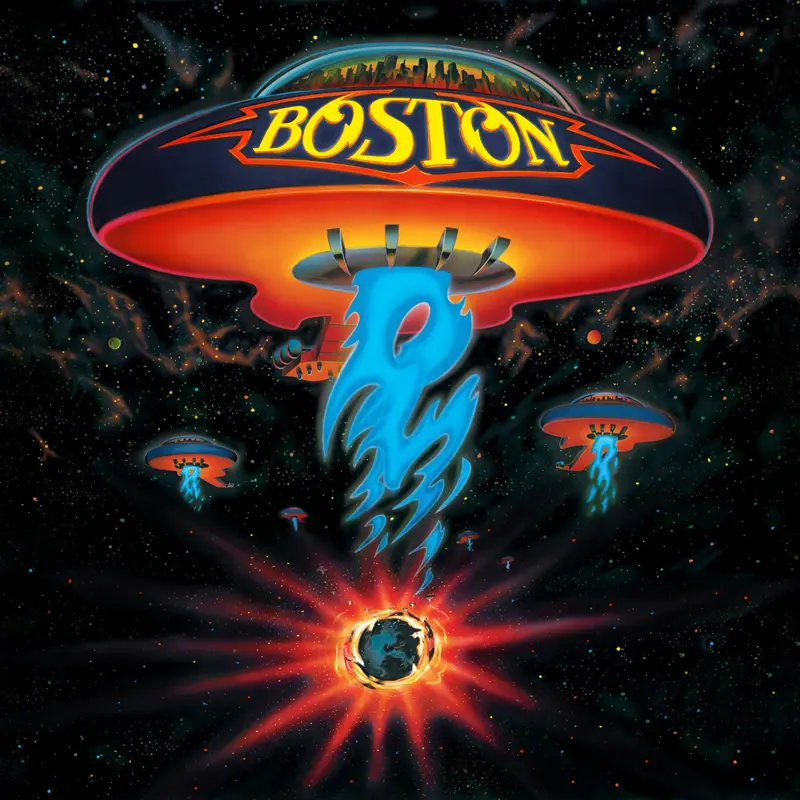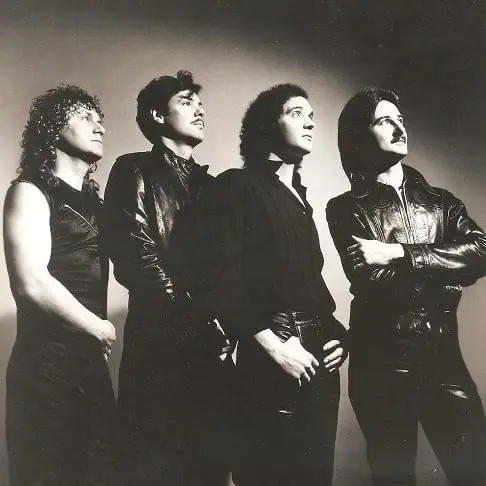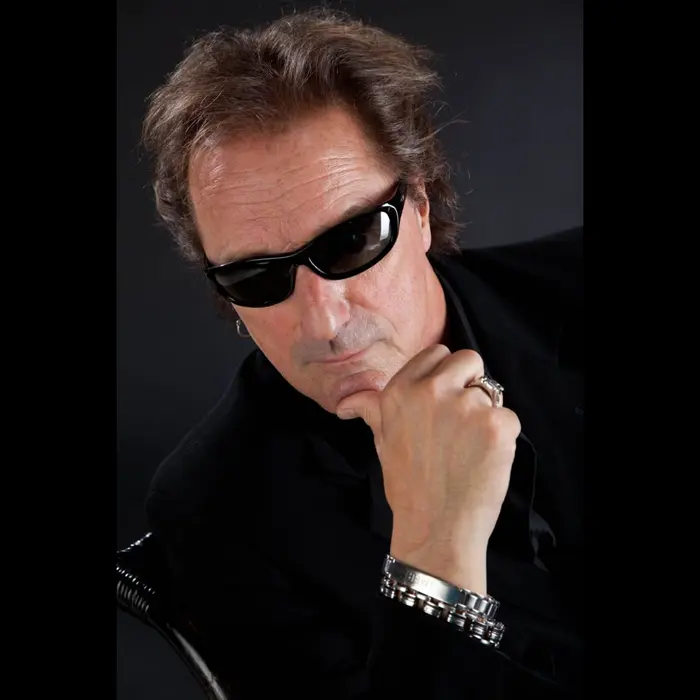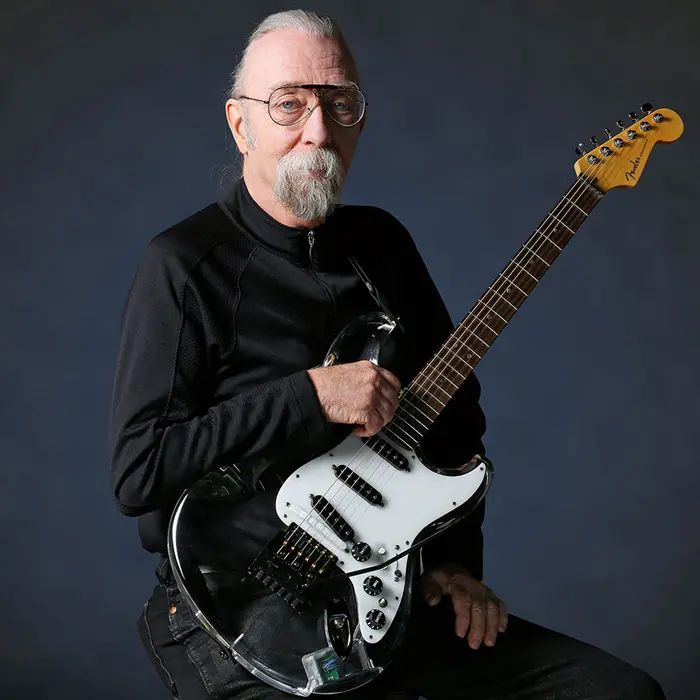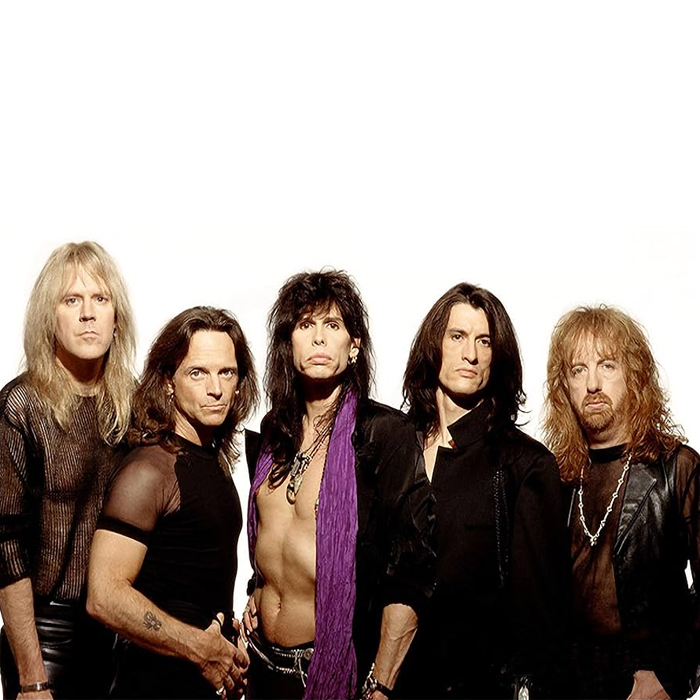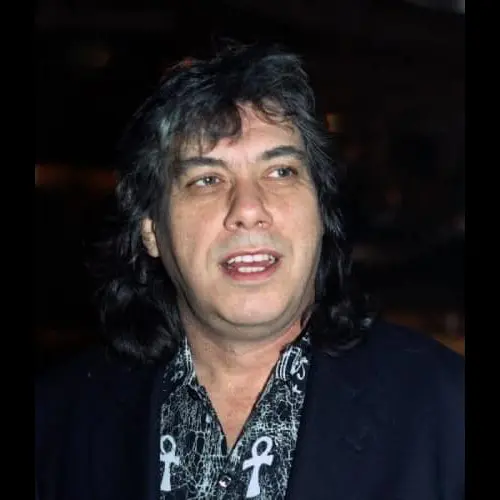Barry Goudreau
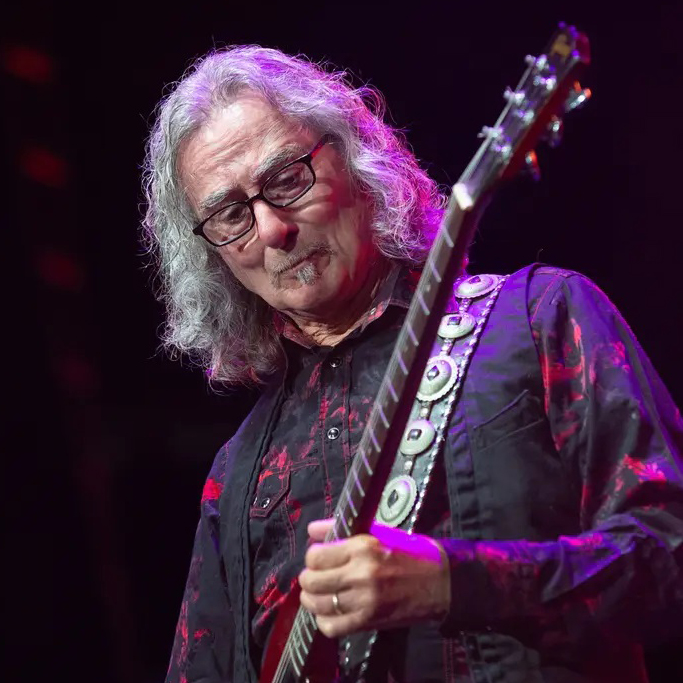
Barry Goudreau’s legendary licks have been a staple of the global music scene for many moons and his remarkable rise to the top started in Massachusetts, where his tremendous talent is still setting standards and one can still treat their ears to his sensational guitar skills.
Born in Boston on November 29, 1951, Goudreau got into music at an early age, drawn especially to guitar. “I remember listening to WMEX, Boston’s rock station, while standing behind the front seat of my mother’s ’59 Plymouth,” he says. “I loved the music, and when I saw Elvis, Roy Orbison and others on The Ed Sullivan Show, I was hooked. But it wasn’t the singer, it was the guitar I was most fascinated with, so I began to ask for my own guitar.” Not willing to buy young Barry a guitar of his own because they didn’t think he’d stick with it, his parents borrowed an acoustic guitar from his babysitter’s family. “As they say, I ‘played until my fingers bled,’ convincing my parents I was in this for the long haul,” Goudreau says. “Within months, they bought me my first guitar, a used 1962 white Stratocaster. I was in heaven! I had the same guitar as The Ventures and The Beach Boys! Boy, I wish I still had that one.’
FIRST BANDS, SIB HASHIAN, AUDITIONING FOR BOSTON
Goudreau joined his first band, The Tornados, at age 13 and at 15 he joined forces with another group that included future Boston drummer Sib Hashian. “I was in that band with Sib and Johnny V from Lynn,” he says. “We played at two places in the Combat Zone, The Novelty Lounge and Edwards Western Playhouse. When we played at Edwards, where the stage was above the bar and involved climbing up a ladder to get to it, we had to play as a three piece because four of us couldn’t fit up there.” Asked how he was allowed into the club at such a young age, Goudreau said that wasn’t an issue, but something else was. “They didn’t seem to have a problem with my age but would tell us ‘quit looking at the girls!’ who were dancing next to us in cages,” he laughs. “The band didn’t really have a name, and nobody really cared what we called ourselves, but ‘live music’ would probably fit the bill.”
In the late ‘60s, Goudreau met future Boston vocalist Brad Delp and bassist Fran Sheehan and auditioned for Delp. “I had a friend who was a guitar player in a good band who had decided to leave the group. In order not to put them in a bad spot without a guitarist, he asked me if I wanted to come to practice to meet them and audition, and I took him up on it,” he says. “I met them and played ‘Communication Breakdown’ by Led Zeppelin. The singer was Brad Delp. I had never heard anybody sing like that since I had seen Robert Plant. The band convinced my friend not to leave so I didn’t get the gig, but I wouldn’t forget Brad.”
BOSTON UNIVERSITY, TOM SCHOLZ, RANDOM SAMPLE
In 1969, Goudreau enrolled at Boston University, where he majored in geology and tried to put music aside to focus on getting his degree. “I started without a major and after taking a geology class I decided to take that on as a major,” he says. “It wasn’t until I was a few years in that I realized a career in geology usually involves working for an oil company or the government, neither of which appealed to me.”
During his sophomore year at BU, he was in a band called Random Sample with a friend from high school who was a student at MIT. “We played cover songs, mostly for parties,” he says. “And yes, there were togas.” It was through that band that Goudreau met future Boston bandmate Tom Scholz, who had just earned his master’s from MIT. “We decided to add a keyboard player so I ran an ad in The Boston Phoenix. Tom answered the ad and, after coming to the frat house to play with us, joined in. He was an excellent keyboard player and had just written his first piece of music, an instrumental, which would later be titled ‘Foreplay’ [and be included on Boston’s debut album].”
DEMO TAPES, EPIC SIGNING, LEGAL BATTLE
Goudreau, Scholz and Delp worked together in late 1969 on an original set of demo tapes where Goudreau performed all the rhythm and guitar parts. That initial attempt to attract major record label interest flopped, but after Scholz re-worked and re-recorded some of these demo tracks in 1974, ABC Records promo man Charlie McKenzie helped him land a six-album deal with Epic Records. The initial result was Boston’s self-titled debut in 1976, on which Goudreau played rhythm and lead guitar on some tracks and was the highest-selling debut in history at the time.
In late 1979, Scholz got involved in legal and contractual battles with McKenzie (and later with CBS) and told the other members of the band he would not be working on Boston material for at least a year, saying that they should feel free to pursue solo projects. Goudreau had already written a lot of songs by that time (hoping to have them included on the next Boston album) and recorded his first solo disc in 1980, Barry Goudreau, bringing in Delp, vocalist Fran Cosmo (who joined Boston in 1991) and Hashian. Record labels sought to cash in on the “almost Boston” lineup and two songs, “Dreams” and “Mean Woman Blues,” received steady airplay. Some have theorized that the LP’s success may have prompted Scholz to ask Goudreau to leave Boston, which he did in 1983 after nearly eight years recording and touring with the band.
ORION THE HUNTER, RTZ, OTHER PROJECTS
In 1984, Goudreau formed Orion the Hunter and Epic released their self-titled debut that same year. Cosmo appeared as lead vocalist, Delp was credited for backing vocals and for co-writing five songs and the band included keyboardist and backing vocalist Brian Maes. After touring as Aerosmith‘s opening act, the group broke up in 1985, roughly a year after coming together.
In 1990, Goudreau assembled RTZ (meaning “return to zero”) and Delp walked away from Boston to join the new band. Maes wrote their song “Until Your Love Comes Back Around,” which earned them a solid following, but Delp and Goudreau felt that Epic wasn’t supporting the band to the best of the label’s ability and asked to be released from their contract. They signed with MTM Records but Delp departed shortly after to re-join Boston.
Goudreau appeared with The Lisa Guyer Band on their 1997 album Gypsy Girl and again on their 2000 album Leap Of Faith, and in 1998 RTZ regrouped to record their second album, Lost. In 2003, Goudreau and Delp formed the duo Delp & Goudreau; the tune “It’s What You Leave Behind” was well received commercially and critically. In 2005, RTZ issued two CDs of previously unreleased tracks that had been earmarked for their never-released third disc; the albums came out in the US on Briola Records as Lost In America and Found In America.
DELP’S, HASHIAN’S DEATHS, “ROCKIN’ AWAY,” RTZ REUNIONS
Delp performed with Goudreau in small venues until his death on March 9, 2007 and Goudreau toured with Hashian until his death mid-set during a rock ‘n’ roll cruise on March 22, 2017. On October 16, 2007, Goudreau released the final song with Delp on vocals, “Rockin’ Away,” which they’d written in the summer of 2006 to celebrate the 30th anniversary of the release of the first Boston album. It was the last song Goudreau and Delp wrote together and reached #18 in the US.
Goudreau occasionally sat in with James Montgomery’s band, then joined Ernie & The Automatics (car magnate Ernie Boch’s band) with RTZ bandmate Maes on keyboards, Tim Archibald on bass and Hashian behind the kit. They did a mini-tour with Deep Purple and their debut album, Low Expectations, was issued in February 2009; they disbanded in 2011. One year after Delp’s death, the remaining RTZ members reunited to record a song Maes wrote, “Set The Songbird Free,” a tribute to their love and respect for their lost bandmate.
These days, Goudreau fronts Barry Goudreau’s Engine Room, which includes Maes, Archibald, drummer Tony Di Pietro and vocalists Mary Beth Maes, Terri O’Soro and Joanie Ciccatelli. Their debut album, Full Steam Ahead, was issued in April 2017 and their most recent disc, The Road, was released in March 2021. He currently lives in Swampscott, Massachusetts, with his wife Connie, son Sean and daughter Michele. Fun fact: Barry Goudreau and Brad Delp were brothers-in-law; Connie’s sister was married to Delp from 1980 to 1996.
(by A.J. Wachtel)

